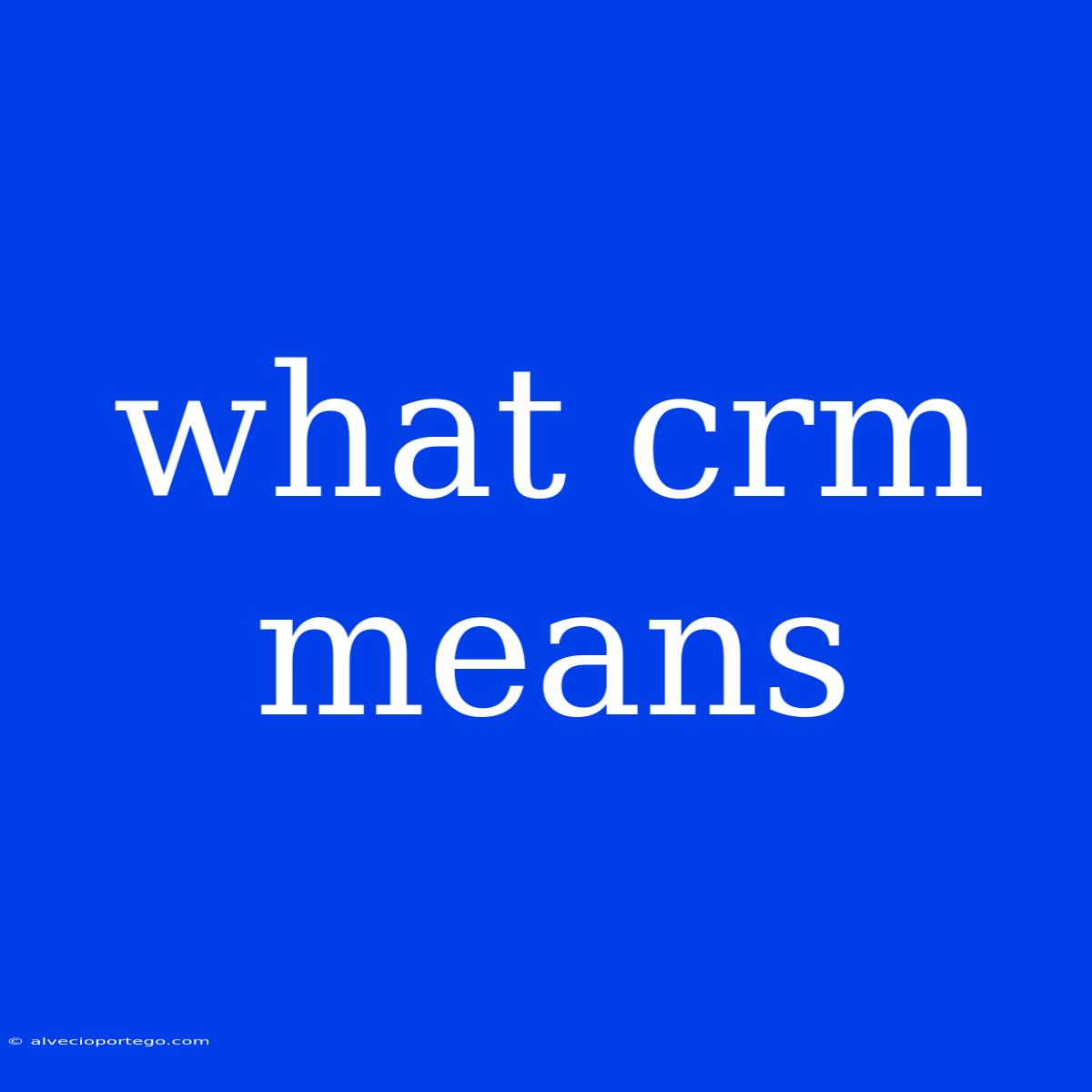What is CRM? Unlocking the Power of Customer Relationship Management
CRM (Customer Relationship Management) is a strategy and technology that businesses use to manage and improve interactions with their customers. It encompasses all aspects of the customer journey, from initial contact to post-sale support.
Essentially, CRM helps businesses:
- Understand their customers better: By collecting and analyzing data on customer interactions, preferences, and behavior, businesses gain valuable insights into their target audience.
- Build stronger relationships: CRM tools enable businesses to personalize communication, offer targeted promotions, and provide tailored support, leading to greater customer satisfaction and loyalty.
- Improve operational efficiency: CRM streamlines processes, automates tasks, and provides a central hub for all customer information, freeing up time for sales and marketing teams to focus on strategic initiatives.
- Boost sales and revenue: By nurturing leads, identifying sales opportunities, and optimizing customer engagement, CRM directly contributes to increased sales and revenue growth.
How CRM works:
CRM systems typically include various modules and features, such as:
- Contact Management: Storing and organizing customer data, including contact information, purchase history, and communication logs.
- Sales Management: Tracking leads, managing opportunities, and automating sales processes.
- Marketing Automation: Creating targeted email campaigns, automating social media interactions, and analyzing marketing performance.
- Customer Service & Support: Managing customer inquiries, resolving issues, and tracking support tickets.
- Analytics & Reporting: Providing insights into customer behavior, sales trends, and overall performance.
Benefits of using CRM:
- Improved Customer Satisfaction: Personalized experiences, proactive support, and timely responses lead to higher customer satisfaction and retention.
- Increased Revenue: CRM helps businesses identify and convert leads, improve sales performance, and increase customer lifetime value.
- Enhanced Productivity: Automation and streamlined workflows free up valuable time for teams to focus on higher-value activities.
- Better Decision Making: Data-driven insights from CRM provide a clearer picture of customer behavior, enabling better business decisions.
- Stronger Brand Loyalty: Consistent, positive customer experiences build trust and loyalty, leading to repeat business and positive word-of-mouth referrals.
Choosing the right CRM:
The best CRM for a business depends on several factors, including:
- Industry: Different industries have specific requirements and functionalities.
- Business Size: The scale of operations will determine the complexity and features needed.
- Budget: CRM solutions come in various price points, ranging from free open-source options to premium enterprise-level systems.
Conclusion:
CRM is an invaluable tool for businesses of all sizes seeking to optimize customer interactions, drive revenue growth, and foster lasting relationships. By implementing a comprehensive CRM strategy, organizations can unlock the power of data to transform their customer experience and achieve sustainable success.

